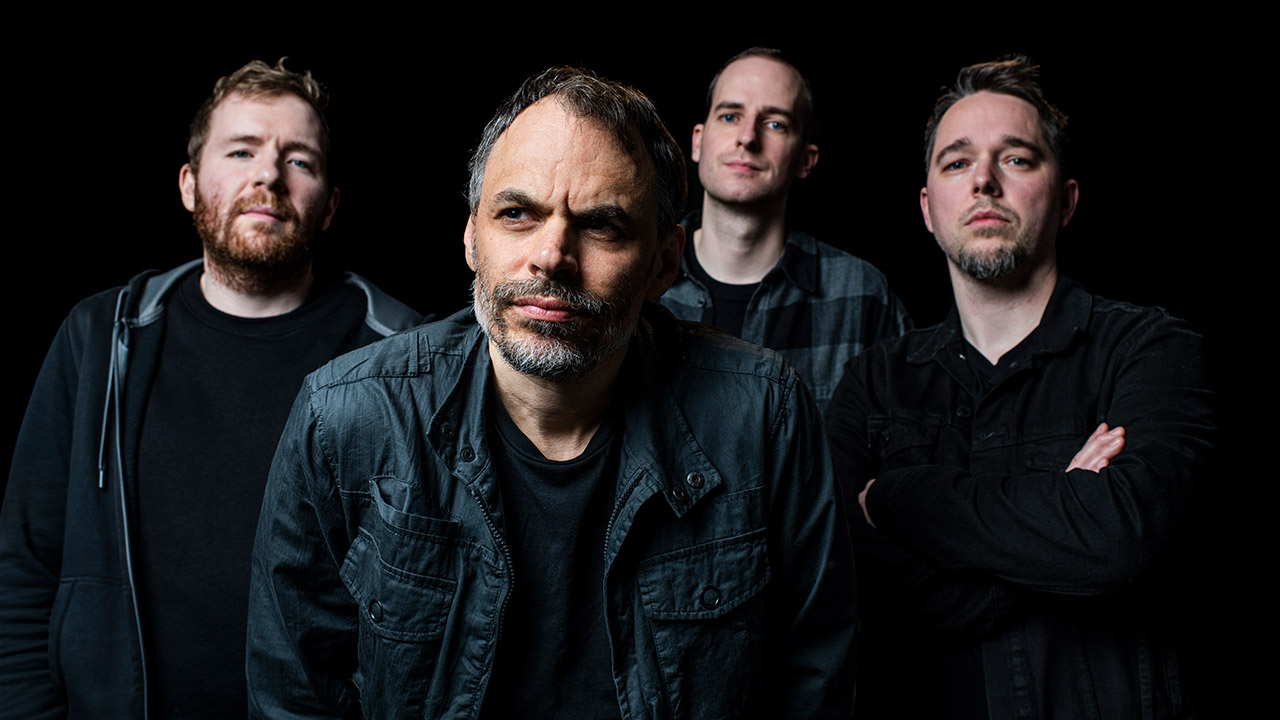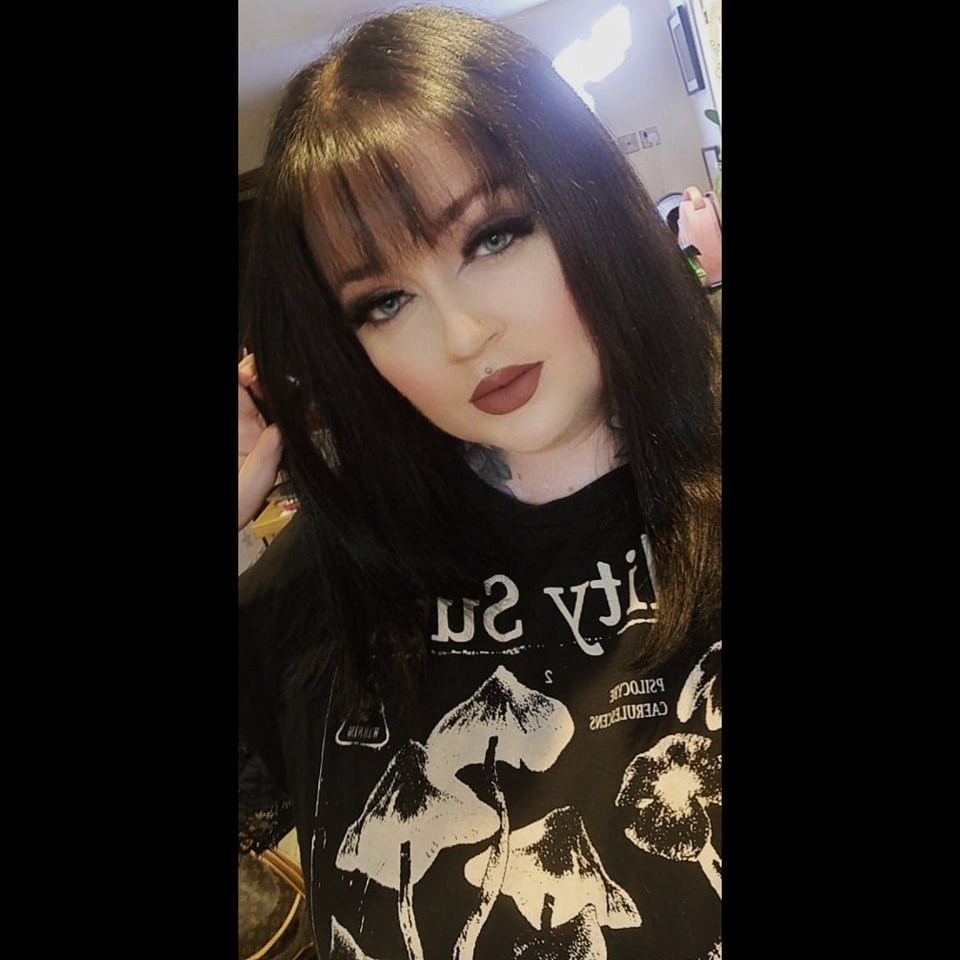“Take no shit!” vocalist Darran Charles yells at us through his webcam, pointing a finger. “That’s my one piece of advice,” he explains when we ask what he’s learned throughout his 14-year tenure as a member of Godsticks. “I actually never wanted to be in a band,” he says.
The group’s formation was nothing more than a college project he was forced into as part of the curriculum at the London Guitar Institute. As a module, he was expected to put together a performance with other members. “I didn’t like it at first because it was just nerve-racking,” he recalls. “I had to spend eight hours a day studying and practising and that.”
Prior to this, Charles had had dreams of composing music for other artists and remaining behind the curtain, but after a few live shows he decided that he could see himself on the stage instead. He dropped the “fantasy” of composing for others, gritted his teeth, and placed an advertisement for other musicians to join him. “The setlist I put together had music from Zappa, George Benson, Steve Vai... a mad variety of musicians,” he laughs. “Just one person replied, that was it.”
That one person was Godsticks’ first bass player, Jason Marsh, and the pair put together a setlist that Charles says they had no audience for. “It was just to challenge ourselves. This is the music we like – we didn’t give a shit if we had an audience or not,” he remembers.
Their search to complete the band continued, but their material limited the applications. “We went through about 8,000 drummers until we were able to find somebody who could play it,” Charles laughs, “I think we were called Multistorey Earthworm back then.”
After those rocky initial years, he “stumbled” into writing his own instrumental music. “I didn’t really appreciate lead guitar as the main melody instrument,” he explains. “I just didn’t think it was a strong enough instrument. Not as strong as the voice. In the end I just put some ideas down and Jason said, ‘Oh, that sounds okay,’ and we went from there.”
He makes it sound so simple – but one listen to Spiral Vendetta, Godsticks’ 2010 debut, and it’s clear it’s anything but. Odd time signatures are scattered across the soundscape, and crunchy, repeating riffs lure in the listener. It’s raw – but it’s plain to see he had a talent for writing even in Godsticks’ infancy.
He struggled to get that release finished. “We managed to put about five songs together but it was an arduous process because we didn’t like what any of the producers were doing,” he recalls. Far from blaming external factors for any sort of conflict, he acknowledges: “We were just idiots, to be honest.” He sent the record out to labels but released it independently, adding, “I was completely naïve. I didn’t have a clue.”
From the reception to Spiral Vendetta though, a light shone in the dark cave of the industry for Charles “I discovered the prog scene,” he smiles. “There were people who might actually want to listen to that music!” It was the scene that convinced him to carry on with Godsticks. Charles explains that the sound of the band since then has been a natural evolution, and puts their growth down to the members’ interactivity and chemistry.
When Godsticks began, he says, he wasn’t interested in socialising with anybody. “I get on with my band members now,” he explains. “Not that I didn’t before, but I never placed any importance on having a rapport with them. It was always just me leading the way and dragging everyone along.”
He felt each member was so talented at their own instrument that he never needed to involve them further than necessary, especially not in the promotional side of the work. “I just assumed I’d have to do it myself,” he says, referring again to his naïvety. “It’s hard work; no one wants to do it... it’s like a fucking job!”
That changed in 2015. With the addition of guitarist Gavin Bushell, drummer Tom Price and bassist Dan Nelson, Charles felt he could open the band up to a more collaborative approach. “They do as much as I do, and that’s a big deal,” he adds. “Everybody contributes and invests into the band, and a shared success is treasured more.” He’s quick to add: “I’m not slagging the previous members off; I never asked them to do anything.”
Times have been pretty difficult for Godsticks over the years, with Charles wondering whether they were doing enough promotion, finding enough good luck, or even creating music in a way that was appealing to people. “It’s either you need a lot of luck, or we’re really shit and I just don’t know about it yet,” he grins. “There is definitely a part of me that thinks, ‘Are we just shit?’”
He’s smiling, but this is a genuine concern for him, and he’s not alone. With music now being so accessible to everybody, more and more people are composing and releasing it without any prior experience – and seeing success.
If a release contains lyrical themes that are relatable to people, it’s obviously easier for them to take on board. This isn’t the approach Godsticks have taken, though: “Lyrics are an afterthought! It’s always been the music that’s come first and the lyrics are inspired by the melody that’s written.” He adds, “Every single song that gets turned into a demo is gibberish, as a rule.”
He elaborates that he just likes the sound of certain words; and that, because of the lockdown period, latest Godsticks album This Is What A Winner Looks Like is inspired by TV shows. He quotes Succession, Breaking Bad and The Sopranos as discoveries throughout that time, and notes that their previous album, Inescapable, had a much more personal feel in comparison. There’s also an element of self-preservation as well as intrigue: “I’m a lot more interested in other people than myself, and I don’t expect anyone else to be.”
At the suggestion that Godsticks aim to lift up darker lyrics with lighter, more upbeat melodies, he bats the observation away: “Everything is subconscious, really,” he explains, “I’d like to take credit for it, but I can’t.”
He’s always the one to start the writing process, “because I’m a control freak,” he jokes. The real reason, though, is because he finds it difficult to sing or create music over other people’s ideas. “I’ll come up with a riff and go a certain amount of the way, maybe up to a verse or a chorus, and then I’ll bring in Tom [Price], and he puts his personality over the top of it. That enhances things and gives me ideas of where to take things next as well.”
Once the structure is in place, the music is sent to Gavin Bushell for new layers, sometimes adding synth parts. “These are things that are not necessarily consequential to the song’s structure – but they’re layers that are really important. Gavin will add those layers and create really incredible textures that inspire me to move forward with an arrangement.”
The final step in this album’s process was to send each track to Dan Nelson – who officially left the band a month ahead of the album’s May release, but whom Charles calls an “incredible” bassist – so that everyone’s personalities and writing styles were combined in the finished product. “While I’m the main songwriter since they’ve been involved, I think they’ve improved the songs because they add ingredients I wouldn’t have thought of,” explains Charles.
Those ingredients often come from years ago, sometimes more than a decade. Although they do write on the fly, many ideas are banked for future reference. “I’ve got folders that go back to 2005 full of ideas,” he says. “I’ve even got folders called ‘Shite’ for ideas that haven’t worked out that I still don’t want to get rid of. I started writing the song Throne about three years ago. If I know there’s a germ of a good idea somewhere, I’ll just work. It can genuinely take months to get something going. As long as there is a tiny germ of an idea, I’ll continue.”
Charles aims to retain the enjoyment in the process, which is “worth everything.” He adds: “This is different from every other album because I know exactly when I started writing and how long it took,” he tells us. “During lockdown, I didn’t do anything because we weren’t playing live. I had no inspiration to write and I never wrote a single, solitary thing.”
With most of what he managed filed in the ‘Shite’ folder, performing live again sparked his creativity, and he wrote 16 songs in eight months – unheard of for him. “Arguably, I haven’t improved my average because over three years it’s still the same number of songs as I’d normally have written,” he laughs.
Godsticks have been placed under various divisions of the prog genre throughout their time, but Charles ponders the suitability of the prog metal label specifically. “Any time you use non-conventional song structures or an odd time signature you get labelled as progressive,” he says. “I understand the importance of classification so you can have a discussion, and it’s probably a fair description,” he continues. “But a lot of the time, ‘prog’ conjures up images of the yesteryear. It’s interesting that prog metal has become bigger than prog.”
To his mind, prog was once about trying new things. “Now it’s there to describe bands that haven’t progressed and are just derivative,” he argues. Bands like Soen and Leprous are not strictly prog metal. I don’t even consider us prog metal, but I don’t see it as an insult.”
But what is it that’s made Charles stick at it with Godsticks for so long? He replies in his usual self-deprecating way: “Delusion.”

